I was watching the chatter, and participating in the conversation, with great fascination. I’ve recorded some data using free social media tools (minutes after Obama left the stage), that look at keywords on twitter, as well as ‘traffic’ to websites of the runners. I rarely place much weight in any single use of these tools, but there is a clear trend towards Obama getting a great deal of activity. Is this telltale to the future? I’m not sure.
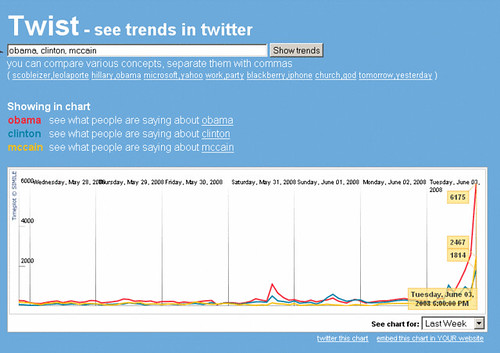
Above: Twist provides activity of keywords over last 7 days. I recorded this immediately after Obama spoke. No surprise that Obama frequency would be higher during this event centered on him.
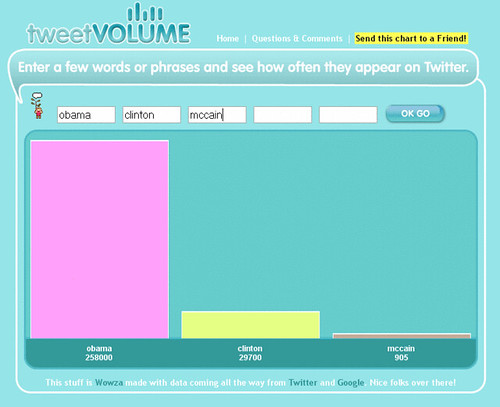
Above: TweetVolume, date range unknown, making it difficult to place any weight on the value of this graph
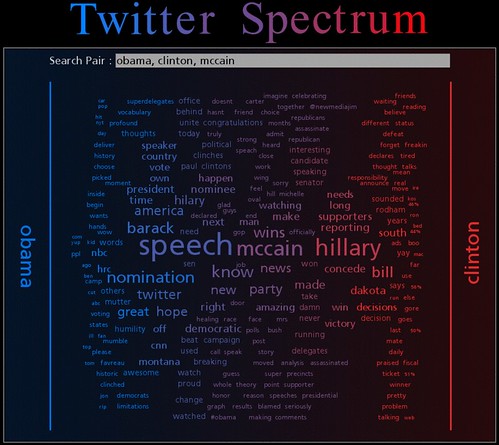
Above: Tag clouds comparing the three keywords, interesting, but not telling much, other than idea association, of course, context is everything, so the terms could be used in a negative way.
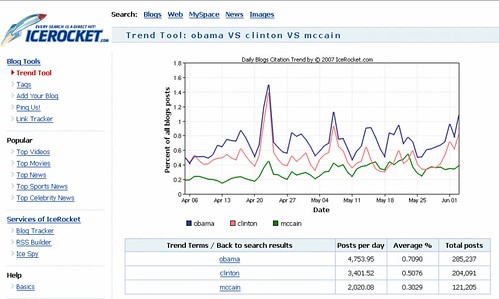
Above: Blog Activity Over last 30 days, this is telling, Obama keywords much higher frequency.
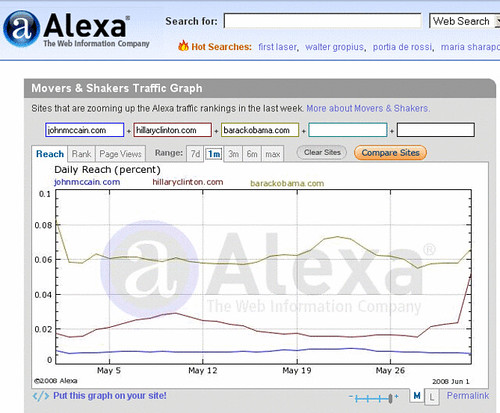
Above: Alexa Website activity to Candidate sites, Obama has higher traffic
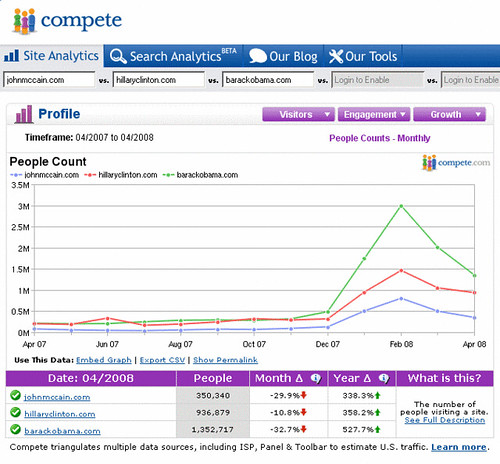
Above: Compete website activity to Candidate sites, again Obama
Related Forrester report from Josh Bernoff: The Social Technographics® Profile of Voters. Love to hear your analysis on this. Also, leave comments below if you know of other websites that are tracking the web strategy of the campaign.
Was this interesting? Share with others by Digging it. Also, see this analysis on viral videos.
Overall I think it shows Obama’s campaign has a more active web presence.
But what happens if you adjust the tweet volume stats to include results for “barack, hillary, mc cain”? Wonder if standardized use of “obama” affects the gap..
Well, I think it’s more fair to compare Obama and Clinton as they were basically in the same news cycle(s) and there was attention focused on their campaigns, whereas McCain has been bbqing for the last few months. That said, there is probably also a demographic issue at play between the Democratic and Republican parties.
nevermind .. just tried it .. minimal difference on the tweet volume
these graphs and charts and coloring books are meaningless unless all those hip/happening morons actually get their asses out of mom’s basement and vote for someone
Nine out of 10 Republicans supports Sen. John McCain, whereas only about 8 in 10 Demorats supports Sen. B. Hussein Obama, with 25% of Sen. Hillary R. Clinton’s former supporters saying they will vote for McCain this November.
With Republicans firmly in their candidates corner, there’s going to be less chatter than there would be amongst Demorats, who only recently concluded a protracted, bitter primary season.
That’s why the Obama disciples are so much more active.